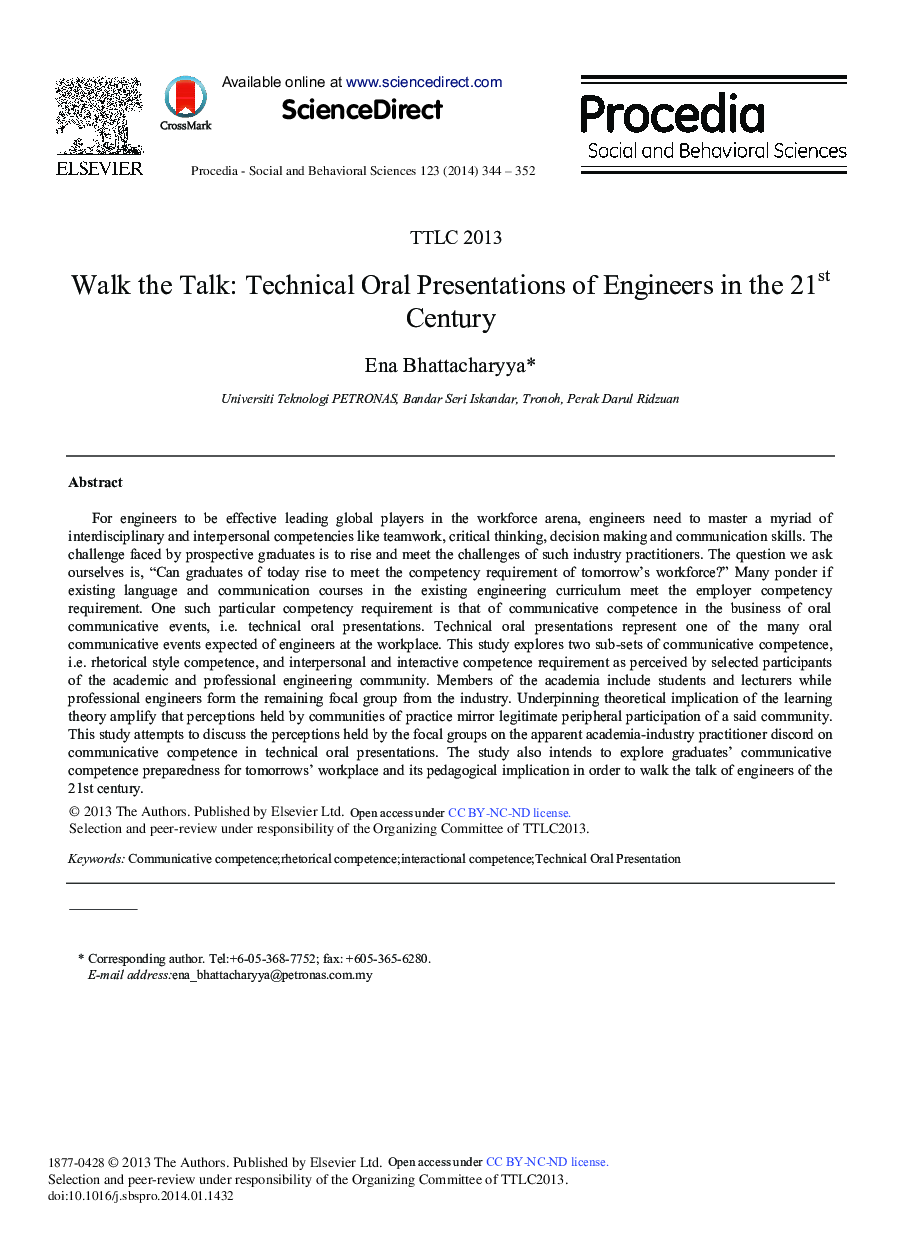| Article ID | Journal | Published Year | Pages | File Type |
|---|---|---|---|---|
| 1114417 | Procedia - Social and Behavioral Sciences | 2014 | 9 Pages |
For engineers to be effective leading global players in the workforce arena, engineers need to master a myriad of interdisciplinary and interpersonal competencies like teamwork, critical thinking, decision making and communication skills. The challenge faced by prospective graduates is to rise and meet the challenges of such industry practitioners. The question we ask ourselves is, “Can graduates of today rise to meet the competency requirement of tomorrow's workforce?” Many ponder if existing language and communication courses in the existing engineering curriculum meet the employer competency requirement. One such particular competency requirement is that of communicative competence in the business of oral communicative events, i.e. technical oral presentations. Technical oral presentations represent one of the many oral communicative events expected of engineers at the workplace. This study explores two sub-sets of communicative competence, i.e. rhetorical style competence, and interpersonal and interactive competence requirement as perceived by selected participants of the academic and professional engineering community. Members of the academia include students and lecturers while professional engineers form the remaining focal group from the industry. Underpinning theoretical implication of the learning theory amplify that perceptions held by communities of practice mirror legitimate peripheral participation of a said community. This study attempts to discuss the perceptions held by the focal groups on the apparent academia-industry practitioner discord on communicative competence in technical oral presentations. The study also intends to explore graduates’ communicative competence preparedness for tomorrows’ workplace and its pedagogical implication in order to walk the talk of engineers of the 21st century.
